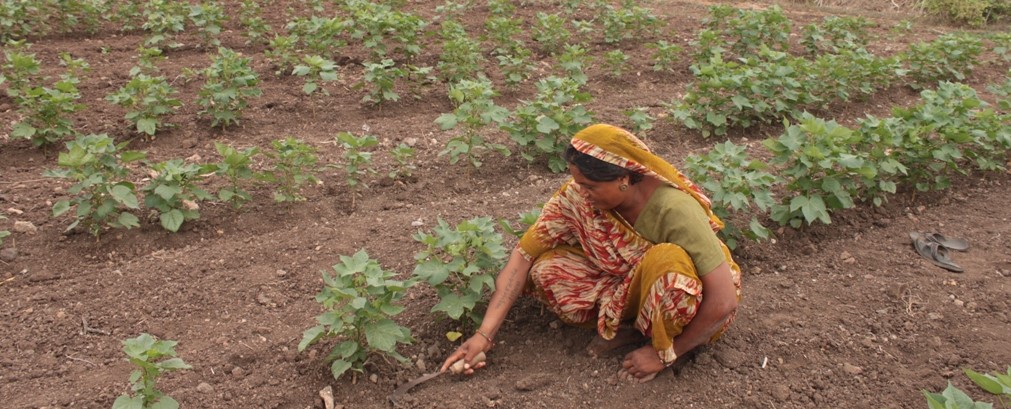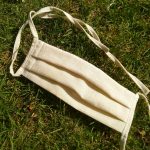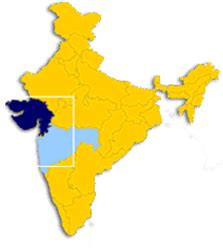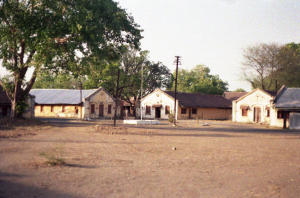Your Garment Stories
MG12SKW – The Story of your Organic Cotton Face Mask
Covid 19: More and more of us are looking to protect ourselves when we venture outside for shopping and exercise. Face masks are now being recommended for situations where it’s hard to keep a necessary distance. At Where Does It Come From? we feel it’s important that these face coverings are natural and breathable, plus we wanted to create washable/re-usable masks which would be good for you and the planet.
M – Organic Cotton Face Mask

We’ve got together with Khadi London and our social enterprise partners in India to create our new range of masks that are:








We’ve designed the masks to have a double layer of handwoven fabric so they offer protection for personal use whilst being comfortable, natural and re-usable. The string ties mean the size can be easily adjusted.
Each pack purchased will give a donation to UK Charity The Trussell Trust and the khadi social enterprise in India Gram Sewa Mandal, Gopuri where the cotton is grown and processed.
G – Rainfed Organic Cotton from Maharashtra, India

Your organic cotton face mask is made from desi cotton. Desi cotton is a sustainable crop, indigenous to the region where it is grown. It grows naturally and is watered purely by rain. It is resilient to the climate and the local pests that threaten the crops and therefore requires little or no additional water or pesticides. Since the introduction of genetically modified varieties (known as BT cotton) most indigenous varieties have died out, sucking farmers into a cycle of buying BT seeds annually instead of the traditional process of saving seeds from the previous year’s crop. Initially the new varieties save the farmers money on pesticides but soon they lose their effects and the farmers often end up in financial difficulties due to the requirement to re-buy seeds annually, plus chemical fertilisers and pesticides. The BT crops are also much more likely to fail in a drought. Indigenous cotton works with the climate and not against it – as one farmer put it ‘cotton is as old as the land here’ – fields can grow sufficient cotton for thousands of metres of fabric from no rainfall at all.
We’ve partnered with a rural social enterprise called Gram Sewa Mandal which is based in Maharastra, in the West of India. They work with local farmers to grow the native cotton varieties and we’ve selected it for your mask – not only due to its social and environmental benefits, but also because it has a unique feel and is comfortable to wear.
1 – Spinning Khadi Cotton
The fabric in our masks is called khadi, the hand spun and handwoven fabrics which were revived by Gandhi more than a hundred years ago as part of India’s non-violent campaign for independence. Ideally all processing, from cotton picking to ginning, carding, roving and spinning takes place within a cluster of villages – providing additional income and an important source of livelihood to farmers and artisans. Khadi forms part of Gandhi’s vision for decentralised, democratic and diverse systems of production in village clusters. Innovations in spinning, weaving and related technologies have helped khadi survive and evolve over the decades.

The spinning for the khadi fabric is done on Amber charkhas – a mini version of the industrial ring frame spinning machines. These are traditionally operated by hand. There has been a recent trend for using solar power to reduce strain for the spinners and improve quality and productivity. The majority of the khadi spinners in India are women, working from home or in work units. They are paid fair wages and benefit from health and welfare programmes.
2 – Weaving Khadi Cotton
Hand weaving was the first local industry to survive competition from British mills. This happened prior to the revival of hand spinning and khadi by Gandhi a hundred years ago. A handloom sector which mostly uses mill made yarn has developed independent of khadi, often competing for state resources and markets. Khadi organises its own weaving. In recent years there has been a welcome trend of the two sectors working together.

Except in more remote regions of India the traditional pit looms have been replaced by stand looms – generally easier to operate and more efficient. Weaving traditions have evolved, often while staying rooted in the family. A recent innovation that has helped both the handloom and khadi sector is the adaptation of looms for weaving denim.
We’ve partnered with the following social enterprise for the whole creation of our our organic cotton face mask.
Gram Seva Mandal
Gram Sewa Mandal (GSM) is a centrally located social enterprise, a few miles from Wardha, a junction where two major lines of India intersect: one from Kolkata in the east to Mumbai in the west and the other from Delhi in the north to Chennai in the South.

Located in a rural setting GSM has an organic farm, a khadi unit where the cotton is processed and spun, a mini oil crushing unit and a printing press. Within GSM there is a strong sense of community and commitment. Life in the community is enriched by their connections with neighbouring villages and beyond. They are playing a lead role in helping farmers make the change over from BT cotton to organic desi cotton, providing them with seeds, marketing and training support.
In recent years, the khadi unit where the cotton is processed and spun has undergone a makeover. Young professionals from urban Maharastra have been at the forefront of this change. Old machines used for pre-spinning processes have or are being replaced by more modern, efficient ones. Connections have been made with ethical consumer networks to help market the cloth. There is a focus on exchange of ideas, not just goods and money. There is also a focus on experimentation, experience and learning.
GSM also has a weaving centre in a nearby village, Nalvadi. Weaving in the region has traditionally been a men’s preserve; with men doing the weaving and women playing supplementary roles. GSM is changing this by training women in weaving.
Tailoring at Gram Sewa Mandal

Gram Sewa Mandal has a popular khadi shop (Khadi Bhandar) in Wardha known for its khadi cloth and clothes, accessories, and other cottage industry products such as cooking oil, soap, and pickles. The bhandar has a pool of about twenty-five self-employed tailors who work from their own homes or shops to make the clothes for the store.
The tailors have their own specialisations. Some are good at making men’s shirts or kurtas, some specialise in pants and others in women’s wear. Khadi underclothes for men are in demand and the bhandar. There are specialist tailors for these whom the store sources out the tailoring to. And there is just one tailor who makes Indian flags. It is a highly skilled task and as the tailor is looking to retire, he is training a younger person to take his place.
Skilled tailors within these pool have been selected for making the masks designed by us. They are passionate about the crafting to the quality standards we have set for them.
Gram Sewa Mandal also worked with women’s groups associated with various institutions around Wardha. A group of 35 women working from home was mobilised for fulfilling an order of 10,000 masks which the organisation received in the spring. They included members of a self-help group, tailors who were trained by a local polytechnic college, and, teachers and parents of a school run on Gandhian principles. The school emphasises horticulture and crafts as a medium of learning, based on the philosophy of ‘hand, heart and head’ working in synchrony produce the best learning results, especially when hands are taking the lead.
W – Where Does It Come From?
Your organic cotton face mask was brought to you by Where Does It Come From?, a brand set up in 2013 to create clothing and textiles that are kind to the planet and the people who make them. We also believe that they are kind to you too, not only because of the natural way we make our clothes but also because knowing the story gives you peace of mind that you are supporting projects that help the environment and are fair to the makers.
For this project we worked with our friends at Khadi London, an organisation which supports and promotes the use of natural fabrics from India, for positive social and environmental benefits.
Both organisations are passionate about inspiring others to shop with more thought about the impacts of their clothing and to offer insight and alternatives to mainstream ‘fast fashion’ and cheap merchandise. We really hope that your face mask gives positive benefits to your life at this time.

